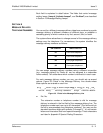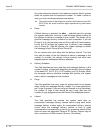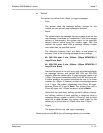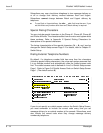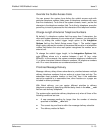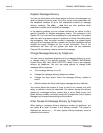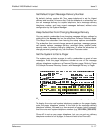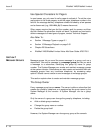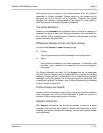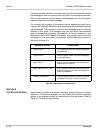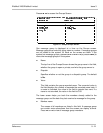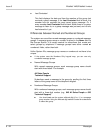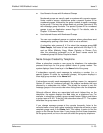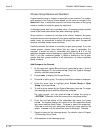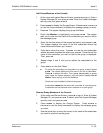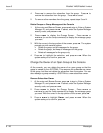
EliteMail VMS/EliteMail Limited Issue 3
Reference 9 - 19
Some groups may be owned by the system instead of by an individual
subscriber or System Manager. Groups owned by the system can be
changed only at the console, not by telephone. However, the System
Manager can reassign a group owned by the system to a new owner to
allow that person to change the group by telephone.
The Group Members
Message group members are the people listed to receive a message. A
message to a group is sent to all the group members. Any subscriber can
be a member of any message group. Guests can be members of certain
groups owned by the guest host.
Differences between Private and Open Groups
You can create private or open message groups.
Private
The only person who can send messages is the group owner.
Open
Any authorized subscriber can send messages. A subscriber does
not have to be a member of an open group to send a message to
that group.
The System Manager can enter Y in the Access field on the subscriber
Personal Directory page to limit any subscriber from creating and sending
messages to open groups. You can restrict only a subscriber from sending
messages to all open groups. The Y code also restricts a subscriber from
creating open groups. For details, refer to Keep Subscriber from Sending
to Open Groups on page 9-27.
Private Groups and Guests
Guests cannot be members of open groups. Because a guest is created to
trade messages only with the host subscriber, a guest can only be a
member of the private groups owned by the host.
Dispatch Distribution
With dispatch distribution, the first group member to listen to a group
message is the only one who receives it. After a subscriber hears all of the
message, the system removes the message from the other group member
voice mailboxes.



